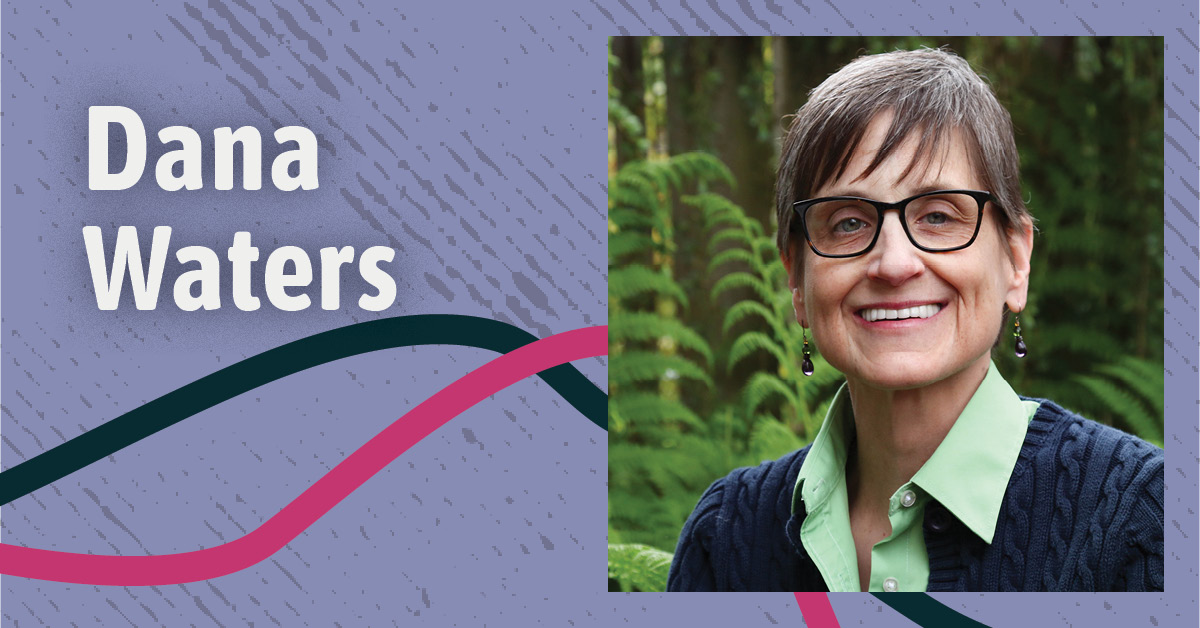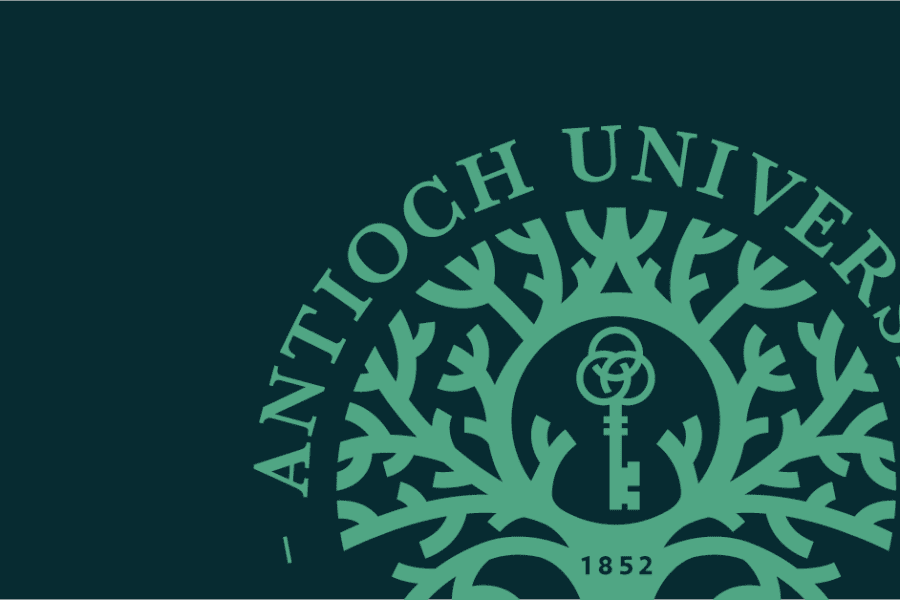In 2012, Dana Waters, PsyD, was contacted by a former student through Facebook. As part of their update about what had been going on in their life, they told Waters, the Associate Chair of the Doctor of Psychology program at Antioch Seattle, that they had recently received the diagnosis that they were Autistic. That sparked Waters’ own curiosity about adult Autism, and she began asking what were the factors for diagnosing adult neurodivergence? And she began wondering if she herself might be Autistic. “I did some online tests and came out looking Autistic as hell,” she says.
Like anyone who is diagnosed later in life, Waters had to figure out what to do with the news. At first, she didn’t share the diagnosis with her co-workers at the Doctor of Psychology Program, because she wasn’t sure how it would be received. But over the years she worked through that initial fear, and she has since become an advocate and educator for the Autistic community. She founded The Awake Project, an Autism awareness organization. And last fall, she published a book about adult Autism, Bite-Sized Autism.
Modeling Advocacy by Sharing Her Diagnosis
After Waters realized that she was on the Autism spectrum, she began to struggle with imposter syndrome. She questioned herself and her abilities as a psychologist and educator. And she worried that sharing this new self-knowledge would make people see her differently.
Waters held onto this fear for almost six years until she found community in an online Facebook support group. She talked with other women and discussed their personal experiences with Autism. After hearing more people’s stories, Waters confided in a coworker, Jude Bergkamp, the Chair of Seattle’s PsyD Program.
The conversation was not nearly as scary as she thought it could be; instead she found that Bergkamp was loving and supportive—and continued to respect her. She decided to share her diagnosis more widely with her Antioch colleagues. Although, as an academic and mental health practitioner, she was initially intimidated to come out as Autistic, she found understanding among her coworkers. “The people I work with have been nothing but supportive. And that’s because Antioch welcomes diversity,” Waters says. Bergkamp encouraged Waters to share her identity and knowledge of Autism and to connect to broader communities. “He really urged me to try to do some bridging,” she says.
This work, she realized, could be part of her own professional mission. The PsyD program incorporates an expanded definition of productivity as an academic. More traditional academic departments often consider the work of a professor to center almost exclusively around research and publishing, but Antioch recognizes things like community building that address the systemic issues that are at the root of mental health. So Waters started advocating and raising awareness around adult Autism. And she shares these experiences with her students and colleagues. “Students find her work inspiring,” Bergkamp says. “She serves as a model for advocacy in action.”
Founding AWAKE
When Waters did more research she discovered a lot of pathologizing in child diagnosis of Autism, and she learned that the way children are treated post-diagnosis often causes more harm. The most common form of behavioral therapy for children who have Autism is Applied Behavior Analysis Therapy, a method that can be very punitive. “What we have found is that almost 100% of kids that have gone through this ABA therapy have complex trauma symptoms when they’re adults,” Waters explains.
Waters wanted to change that narrative, so she turned to social media. “Everything I was reading in psych literature was so damning, even the language they use, words like ‘disorder,’” she says. ”My posts are about subverting that.” Waters uses her social media accounts as direct ways to educate people about Autism.
One thing Water learned through her advocacy is the unfortunate fact that girls are often less likely to be diagnosed because they are socialized to mask their Autistic symptoms. For this and other reasons, the great majority of Autism research has centered on Autism among white, male demographics.
In light of these disparities, Waters decided to found an organization focused on women on the spectrum, The Autism Women’s Advocacy/Activism, Knowledge and Empowerment Project, known for short as The AWAKE Project. The AWAKE Projects’ mission is to provide Autism content online in the form of original, understandable, accounts of lived experiences together with scientifically-based informational memes.
The effort has been a great success. Bergkamp says that Waters has “leveraged social media in ways that leave most of us academics in the dust!”
The organization is a hallmark example of integration of life, work, and activism. Waters blends her expertise, professional and personal experience, and social justice passion into a project that has already touched many lives. “She addresses issues of power and privilege, along with cutting-edge research and treatment suggestions,” says Bergkamp. He admires Waters’s tenacity and vulnerability during the germination of the AWAKE Project. He says, “It’s her commitment to the work that has resulted in its success.”
Sharing Her Perspective Through Writing
Perhaps the most ambitious and tangible result of The Awake Project’s work is the recent publication of Waters’s book on adult Autism, titled Bite-Sized Autism. The book aims, in part, to provide a glimpse into the lived Autistic perspective. Waters says that her offer to non-Autistic readers is to say something like, “Here, take our glasses, look around and see what it’s like.”
Writing the book was not always the easiest thing for Waters. At first, she dreaded the writing process. But her wife encouraged her, saying that she was already doing all the writing in her social media posts. That insight gave Waters the push she needed to begin writing, compiling, and organizing her many posts into the book.
She says, “Everybody at Antioch has been so receptive and happy about the neurodiversity piece.” Since the publication of Bite-Sized Autism, Waters has had students and many followers reach out to her and express their gratitude for feeling seen in her book.
“People are finding themselves in the book and posts,” Waters says. “It’s so humbling.”
Waters continues to write posts on her social media. They could become her next book on Autism down the line, but in the meantime, she continues to work to empower people and to educate folks that want to know more about neuroscience and the real life experiences of Autistic people.



